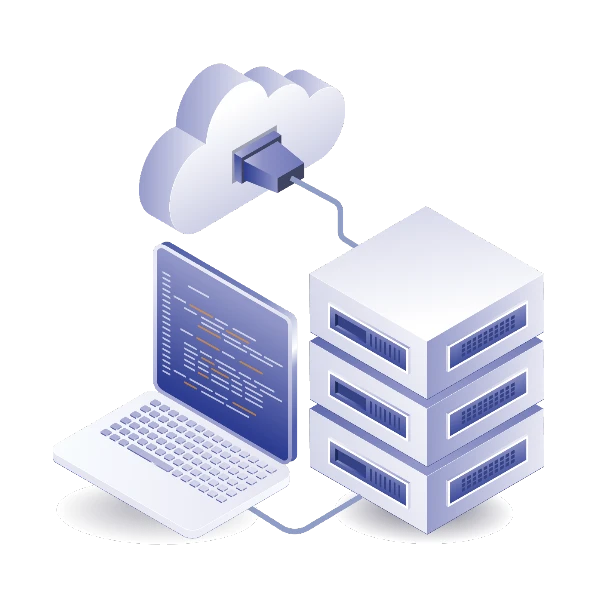Benefits of Microservices Development Services
SGA’s microservices development services help businesses build modern, scalable, and resilient applications. By adopting a modular, cloud-native approach, we ensure flexibility, faster development, and seamless integration with emerging technologies.
Microservices Development Services
SGA’s microservices development services cover the following offerings:
Microservices Development Services
- Assessment of existing monolithic applications.
- Strategy for microservices adoption and migration.
- Architecture design and best practices.
- Technology stack selection (Spring Boot, Node.js, Kubernetes, Docker, etc.).
Custom Microservices Development
- Development of independent, scalable microservices.
- API design and implementation (REST, GraphQL, gRPC).
- Event-driven and asynchronous processing (Kafka, RabbitMQ).
- Database management for microservices (SQL, NoSQL, PostgreSQL, MongoDB).
Microservices Containerization & Orchestration
- Docker containerization for easy deployment.
- Kubernetes-based orchestration and scaling.
- Service discovery & load-balancing solutions.
- CI/CD pipeline implementation for automated deployments.
Microservices Security & Compliance
- Authentication & authorization (OAuth2, JWT, OpenID Connect).
- Data encryption and API security best practices.
- Compliance with industry regulations (GDPR, HIPAA, PCI-DSS).
- Security monitoring and threat detection.
Monitoring, Logging, & Maintenance
- Centralized logging & monitoring (ELK Stack, Prometheus, Grafana).
- Performance optimization and scaling strategies.
- Incident management and automated troubleshooting.
- 24/7 support & continuous improvements.
Microservices Integration & API Gateway
- API gateway setup (Kong, Istio, AWS API Gateway).
- Service mesh implementation (Istio, Linkerd).
- Seamless integration with third-party services.
- Legacy system modernization with microservices.
Microservices Development Approach
SGA’s microservices development approach follows a structured, agile methodology to ensure scalability, flexibility, and high performance. We leverage modern frameworks, DevOps practices, and cloud-native architectures to build robust microservices solutions.
- Business Requirement Analysis: Understand business needs and define key functionalities.
- Microservices Feasibility Study: Evaluate the suitability of microservices for the project.
- Technology Stack Selection: Choose the best tools (Spring Boot, Node.js, Kubernetes, Docker, etc).
- Architecture Design: Plan service boundaries using Domain-driven Design (DDD) and event-driven principles.
- Service Decomposition: Identify and define independent microservices.
- API-first Development: Design APIs using REST, GraphQL, or gRPC for seamless communication.
- Database Strategy: Implement polyglot persistence (SQL, NoSQL, PostgreSQL, MongoDB).
- Event-driven & Messaging System: Use Kafka, RabbitMQ, or SQS for asynchronous communication.
- Agile & CI/CD Approach: Continuous integration, delivery, and deployment using DevOps.
- Microservices Containerization: Use Docker for lightweight, scalable deployment.
- Service Orchestration: Manage services using Kubernetes for auto-scaling and high availability.
- Security Implementation: OAuth2, JWT, API Gateway Security, and Role-based Access Control (RBAC).
- Unit & Integration Testing: Validate individual services and inter-service communication.
- Performance & Load Testing: Ensure that microservices can handle real-world traffic.
- Security Testing: Detect vulnerabilities and enforce compliance (GDPR, HIPAA, PCI-DSS).
- Chaos Engineering: Test system resilience under failure conditions.
- Automated Deployment: Use CI/CD pipelines for seamless rollout (Jenkins, GitHub Actions, GitLab CI).
- API Gateway & Service Mesh: Implement Kong, Istio, or AWS API Gateway for load balancing and routing.
- Cloud & Hybrid Deployment: Deploy on AWS, Azure, GCP, or on-premises infrastructure.
- 24/7 Monitoring & Incident Management: Ensure uptime and rapid issue resolution.
- Performance Tuning: Optimize service execution and resource utilization.
- Feature Enhancements & Iterations: Implement feedback-based improvements.
- Business Requirement Analysis: Understand business needs and define key functionalities.
- Microservices Feasibility Study: Evaluate the suitability of microservices for the project.
- Technology Stack Selection: Choose the best tools (Spring Boot, Node.js, Kubernetes, Docker, etc).
- Architecture Design: Plan service boundaries using Domain-driven Design (DDD) and event-driven principles.
- Service Decomposition: Identify and define independent microservices.
- API-first Development: Design APIs using REST, GraphQL, or gRPC for seamless communication.
- Database Strategy: Implement polyglot persistence (SQL, NoSQL, PostgreSQL, MongoDB).
- Event-driven & Messaging System: Use Kafka, RabbitMQ, or SQS for asynchronous communication.
- Agile & CI/CD Approach: Continuous integration, delivery, and deployment using DevOps.
- Microservices Containerization: Use Docker for lightweight, scalable deployment.
- Service Orchestration: Manage services using Kubernetes for auto-scaling and high availability.
- Security Implementation: OAuth2, JWT, API Gateway Security, and Role-based Access Control (RBAC).
- Unit & Integration Testing: Validate individual services and inter-service communication.
- Performance & Load Testing: Ensure that microservices can handle real-world traffic.
- Security Testing: Detect vulnerabilities and enforce compliance (GDPR, HIPAA, PCI-DSS).
- Chaos Engineering: Test system resilience under failure conditions.
- Automated Deployment: Use CI/CD pipelines for seamless rollout (Jenkins, GitHub Actions, GitLab CI).
- API Gateway & Service Mesh: Implement Kong, Istio, or AWS API Gateway for load balancing and routing.
- Cloud & Hybrid Deployment: Deploy on AWS, Azure, GCP, or on-premises infrastructure.
- 24/7 Monitoring & Incident Management: Ensure uptime and rapid issue resolution.
- Performance Tuning: Optimize service execution and resource utilization.
- Feature Enhancements & Iterations: Implement feedback-based improvements.






